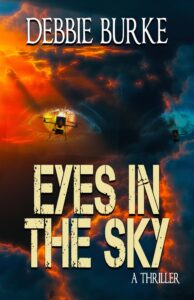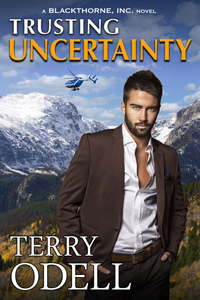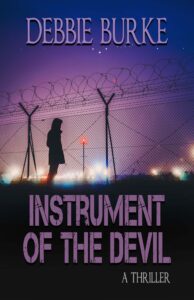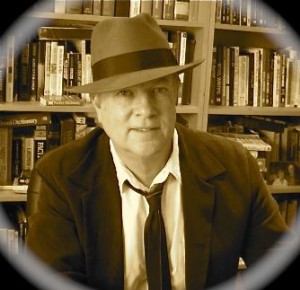By PJ Parrish
Good morning, folks. Hope your long weekend was spent with family and friends and connections were reborn. I’m up in Michigan now for half the year and it has been wonderful seeing family again. It’s great to get hugs and go out for a hamburger. But now it’s time to get back to work, so on this Tuesday, I offer up a First Pager from one of our contributors. Give it a read and we’ll talk.
Girl in the Leaves
“How are you feeling today, Rebecca?” Dr. Ashley Riley asked, seated behind a large pine desk. “It’s been eleven months since our last session.” She walked from around the desk, took a seat in the leather chair across from me and placed a recording device on the table separating the two of us. Doctor Riley was a lean, bright-eyed woman in her mid-fifties.
Her long, chestnut hair had been pulled into a ponytail.
My eyes burned from lack of sleep. “Peachy-keen, Doc.”
“Nice try. Now tell me the truth.”
This woman had always been direct—a quality I both liked and disliked about her. Soft music played in the background. A large flat screen television displayed a fireplace, its flames moving in harmony with the melody. I never understood the benefit of listening to the sounds of sitar music, but never enough to ask to stop it.
My right knee trembled. I thought about sipping the iced coffee but decided against it. I have a ruby birthstone where my wedding band used to be. Sometimes, like now, when I’m nervous I twist it around my finger.
“I’ve been having dreams. Nightmares would be more accurate.”
“What kind of nightmares?”
“My mother getting away with murder.”
She stared at me. “The trial date been scheduled?”
“No. And that’s disconcerting.”
“How long has she been awaiting trial?”
“Eighteen months and counting.”
Doctor Riley pursed her lips, taking in the information. She never responded too quickly. I wondered if this was a skill taught by her professors at school or honed over time. “In the grand scheme of things, eighteen months for a high-profile case is not uncommon. As a homicide detective, you know this. So why don’t you tell me what’s eating at you.”
I stood. My legs went all rubbery and for a moment I worried they might give out. They didn’t and I walked over to an aquarium. A variety of marine life called this home. My favorite was the Oscar who seemed to rule the tank. As a child my father, my biological one not the animal who molested me, bought me a fishbowl when I turned six. He helped pick out a Beta. But after my father’s death, I could never bring myself to own another fish tank.
_____________________
There’s a lot I like about this beginning, so most my thoughts, dear writer, are focused on subtle ways to perhaps refine what is already here. Although the opening is not action-packed, it has a good quiet tension about it that would make me want to read on. I’ve read a lot of these kind of openings in recent years — a troubled protagonist is in a doctor’s office and the doctor’s questioning is our portal into the plot. It’s a common trope now, so there’s a chance this can feel stagey and trite. I’ll let you all weigh in on that, but I’m willing to give the writer some time to develop Rebecca’s story a bit more.
I like that the writer is conveying necessary backstory info via dialogue rather than merely relying on narrative. (She/he is using both here). For example, the writer could have written something like this:
I had been having nightmares for months now and they were always the same — some variation that my mother, who had killed my father, had broken out of prison and was now coming for me. The thing was, I didn’t even know where my mother was and the trial wasn’t scheduled for another eighteen months. But I still was plagued by bad dreams.
(I took some plot liberties to make a point.) What’s wrong with this? Eh, it’s all narrative and while it’s okay, it’s much more compelling to dole out this info via dialogue, as our writer does. Always remember: DIALOGUE IS ACTION. So kudos writer! Yes, it’s okay to move into pure narrative at times, as this writer does with this:
As a child my father, my biological one not the animal who molested me, bought me a fishbowl when I turned six. He helped pick out a Beta. But after my father’s death, I could never bring myself to own another fish tank.
The revelation about the mother comes via dialogue, so I like the change-up when the writer switches to narrative/memory for the father backstory. It’s all about controlling your pacing and giving the reader variety. Narrative = slowing down. Action/Dialogue = speeding up and immediacy. So use each wisely when it comes to pacing.
Now, let’s talk about the opening graph. I’m not crazy about it. If you open with a quote, especially from the non-protagonist, it darn well better be a good one. “How are you feeling today?” just doesn’t rock my boat. It has no resonance, no juicy hidden meaning. With the rest of the scene being so good, I’d like the writer to try to find something less banal. Now the NEXT line, wherein the doc tells us Rebecca’s been AWOL from her therapy for nearly a year IS interesting. And I would think that this fact is foremost in the doctor’s mind. Weigh in if you disagree!
Also, I think we have a problem with focus here. The doctor gets the first line, the first full name, and the first physical action. Which takes our focus OFF Rebecca at the very time when we need to establish a connection with her. We need the reader’s full attention on Rebecca. Even if the writer choses to give the doctor the first line, I’d take her name and physical movement out of the equation. This is easily fixed, something like:
“You’ve been away a long time, Rebecca. What happened?”
I stared at the woman across the desk from me, trying to figure out how to answer. Dr. Ashley Riley was a lean, bright-eyed woman in her mid-fifties. The last time I had seen her, her chestnut hair had been short, but now she was wearing it in a ponytail. I realized I couldn’t remember how long ago our last session had been — six months, a year?
How the doc wears her hair is not important — unless you MAKE it mean or relate something, in this case, Rebecca’s absence. Description needs to have purpose. Don’t lavish description and dialogue on secondary characters at the expense of your protagonist. (especially in first person POV).
Now, let’s do a quick line edit.
“How are you feeling today, Rebecca?” Dr. Ashley Riley asked, seated behind a large pine desk. “It’s been eleven months since our last session.” She walked from around the desk, took a seat in the leather chair across from me and placed a recording device on the table separating the two of us. Doctor Riley was a lean, bright-eyed woman in her mid-fifties. This is what I mean by wasting description on a secondary character, which created a false-focus in the reader’s mind. Ditto the detail about the ponytail below.
A note about the doctor placing a “recording device” on the desk. I asked a psychiatrist friend about this and she said that sessions are not routinely recorded and that most doctors just take notes. If recordings are needed, they must be with the consent of the patient to be legal. So the writer has to eliminate this or clarify it.
Her long, chestnut hair had been pulled into a ponytail.
My eyes burned from lack of sleep. Nice detail. “Peachy-keen, Doc.”
“Nice try. Now tell me the truth.” Dialogue is brisk and note lack of attribution. Not needed!
This woman had always been direct—a quality I both liked and disliked about her. Might be a good place to drop in backstory: How long has she been seeing this doc? Soft sitar music played in the background. A large flat screen television displayed a fireplace, its flames moving in harmony with the melody. I never understood the benefit of listening to the sounds of sitar music, but never enough to ask to stop it. Something missing here. “but was never brave enough…?
My right knee trembled. I thought about sipping the iced coffee where did it come from? but decided against it. I have a ruby birthstone where my wedding band used to be. Nice way to slip in backstory! Sometimes, like now, when I’m nervous I twist it around my finger.
“I’ve been having dreams. Nightmares would be more accurate.”
“What kind of nightmares?”
“My mother getting away with murder.” Well, this makes me want to read more, as does the next exchange. Mom’s up on a “high profile case” maybe a murder charge? But apparently, she’s out on bail? Unclear. Also, IF indeed mom is up for murder, she can’t get bail pending trial. (Very rare exceptions). Check the facts in your state where your story takes place, writer.
She stared at me. “The trial date been scheduled?”
“No. And that’s disconcerting.”
“How long has she been awaiting trial?”
“Eighteen months and counting.”
Doctor Riley pursed her lips, taking in the information. She never responded too quickly. I wondered if this was a skill taught by her professors at school or honed over time. Given she’s in her mid-fifties, this is an odd thought.
New graph needed her since it’s doc talking, since the last thought was Rebecca’s. “In the grand scheme of things, eighteen months for a high-profile case is not uncommon. As a homicide detective, you know this. Great way to convey what the protag does! The writer could have put this in Rebecca’s thoughts ie “As a homicide detective, I knew that…” But that is so clumsy. Note how much more adroit this is. So why don’t you tell me what’s eating at you.”
I stood. My legs went all rubbery and for a moment I worried they might give out. They didn’t and I walked over to an aquarium. Note that by saving a physical movement for here and giving it to Rebecca rather than the doc, you train focus on REBECCA! Keep the doc stationary and in the background where she belongs. A variety of marine life called this home. My favorite was the Oscar who seemed to rule the tank. Remember, she’s been away from this office for almost a year. I’d have her look for him, almost as a comfort. (Oscars can live 20 years btw) So if the fish is gone now, that could mean something, even just metaphorically, to Rebecca. Who, btw, lost her father, who at one point ruled the tank/home. As a child my father — my biological one not the animal who molested me — I’d use dashes here to set this important thing apart bought me a fishbowl when I turned six. He helped pick out a Beta. But after my father’s death, I could never bring myself to own another fish tank.
Small fix needed for this: As a child, my father…bought me. Change this to: When I was six, my father — my biological one not the animal who molested me — bought me a fishbowl.
Some might find this passage about the fathers heavy-handed but I like it. It’s a shocking revelation, but because the writer wisely couched it in a benign memory-association of a the fish tank, it worked, imho. It also makes me wonder if mom killed dad! But that’s good — to make me wonder!
So, dear writer, I like what you’re doing here. You’ve got an adept hand at gracefully inserting info and backstory. The dialogue is good and the opening promising. As I said, I would read on. But give some thought to massaging that opening graph. There’s a better one in you and Rebecca will thank you for it.
BTW, I like your title because I trust that it comes to really mean something in the context of your plot. Thanks for submitting, keep writing, and good luck!

 Coming up with a great idea, one that gets your nerve endings buzzing, is like love at first sight. You’re giddy. You can’t wait to spend precious months with this new romance.
Coming up with a great idea, one that gets your nerve endings buzzing, is like love at first sight. You’re giddy. You can’t wait to spend precious months with this new romance. Once you have a complete draft, you move into the hard-scrapple world of revision. And here you need a system.
Once you have a complete draft, you move into the hard-scrapple world of revision. And here you need a system.





 Garry Rodgers’s answers (indie pub):
Garry Rodgers’s answers (indie pub): Joe Hartlaub’s answers (trad pub):
Joe Hartlaub’s answers (trad pub):  Sue Coletta’s answers (trad pub):
Sue Coletta’s answers (trad pub):  Debbie Burke’s answers (indie pub):
Debbie Burke’s answers (indie pub):









